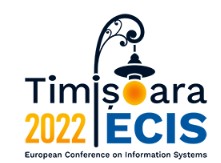Paper Number
1043
Abstract
Smart meter user interfaces can be designed to promote sustainable resource consumption by individuals. Although goal setting is a promising artifact for smart meter user interfaces, it is still unclear how goal-related design features (DFs) should be designed to be particularly effective in motivating individuals. Drawing on goal-framing theory and employing a design science research approach, we designed and evaluated different design options for four goal-related DFs (i.e., consumption display, evaluative standard, goal incentive, reference group) in the context of households’ energy consumption in three design-evaluation cycles. Our results suggest that while one design option for consumption displays and evaluative standards is better suited than others to motivate sustainable behavior, the effects of goal incentives and a goal’s reference group depend on individuals’ personal preference for either collaboration or competition. Our study contributes to information systems research with novel insights on goal-related DFs and how they affect sustainable resource consumption.
Recommended Citation
Wendt, Charlotte and Benlian, Alexander, "Motivating Sustainable Resource Consumption Through the Design of Goal Setting in Smart Meter User Interfaces" (2022). ECIS 2022 Research Papers. 8.
https://aisel.aisnet.org/ecis2022_rp/8
When commenting on articles, please be friendly, welcoming, respectful and abide by the AIS eLibrary Discussion Thread Code of Conduct posted here.


